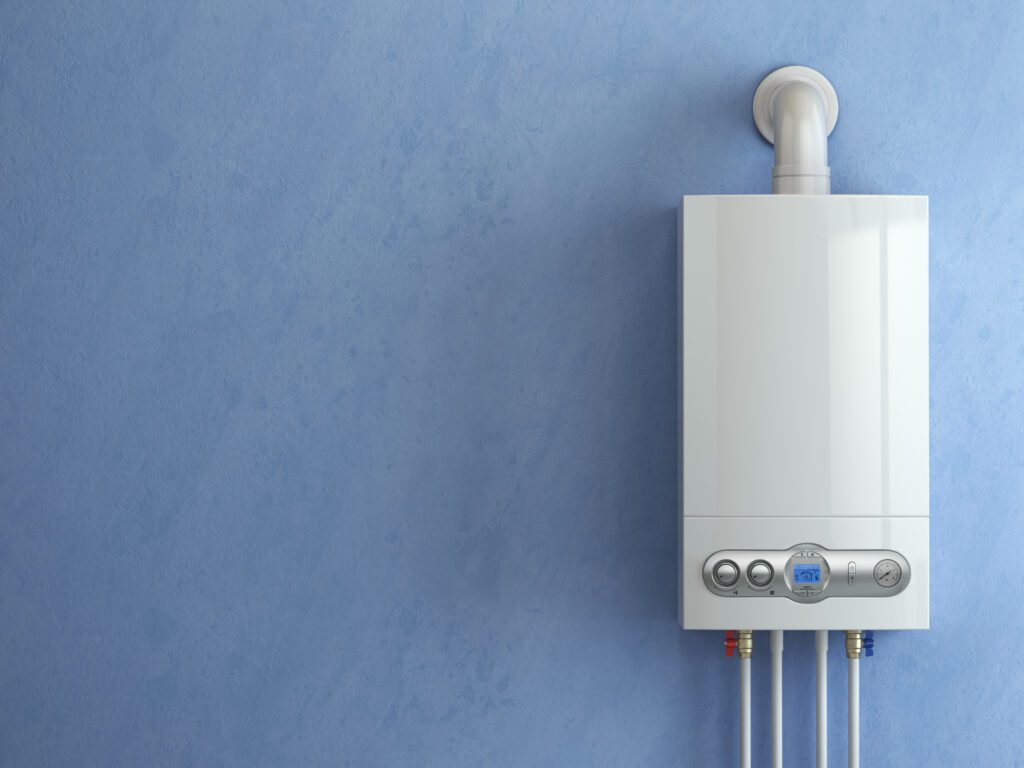As winter approaches in Martinsburg, it becomes increasingly important to ensure that your boiler system is functioning efficiently. A well-maintained boiler not only keeps your home warm but also helps in preventing unexpected breakdowns. In this article, we will explore various aspects of boiler maintenance and repair to help you keep your system running optimally.
Understanding Your Boiler System
Understanding how your boiler system operates is crucial for effective maintenance and repair. A boiler heats water to provide heating and hot water to your home. The steam or hot water then circulates through radiators or underfloor heating to maintain a comfortable temperature. Regular maintenance not only ensures efficiency but also prolongs the lifespan of the system, reducing the likelihood of unexpected breakdowns during the colder months. Homeowners should familiarize themselves with the basic operation and indicators of their boiler’s performance to catch any potential issues early.
Key Components of a Boiler System
Every boiler system is composed of several key components that work in unison. Knowing these parts can help you troubleshoot minor issues. Each component plays a specific role in the overall functionality of the system, and understanding their interactions can provide insight into how to optimize performance. For instance, if your radiators are not heating up properly, it may indicate an issue with the thermostat or a buildup of air in the system that needs to be bled.
- Burner: This is where the fuel is combusted to generate heat.
- Heat Exchanger: Transfers the heat from the burned fuel to the water.
- Thermostat: Regulates the temperature and helps in maintaining desired settings.
- Radiators: Distribute hot water or steam throughout your home.
- Expansion Tank: Absorbs excess pressure created by heating water.
Common Boiler Types in Martinsburg
There are several types of boilers commonly found in Martinsburg, each with its own advantages and disadvantages. Understanding these can help homeowners make informed decisions about maintenance and repairs. The choice of boiler type can significantly impact energy efficiency and heating costs, making it essential to select the right system for your home’s specific needs. Additionally, local regulations and available fuel sources may also influence the decision on which boiler to install or maintain.
- Combi Boilers: These provide on-demand hot water and heating without the need for a separate tank.
- System Boilers: Ideal for homes with multiple bathrooms, they store hot water in a cylinder.
- Conventional Boilers: Use a tank to store hot water, perfect for larger homes with high demand.
In Martinsburg, many homeowners are increasingly opting for energy-efficient models that not only reduce utility bills but also have a lower environmental impact. For example, condensing boilers are designed to recover heat from exhaust gases, making them more efficient than traditional models. Furthermore, with the rise of smart home technology, some modern boilers can be controlled remotely via smartphone apps, allowing for greater convenience and energy management. As you consider your options, it’s beneficial to consult with a professional to assess your home’s heating requirements and determine the most suitable boiler type for your situation.
Identifying Common Boiler Problems
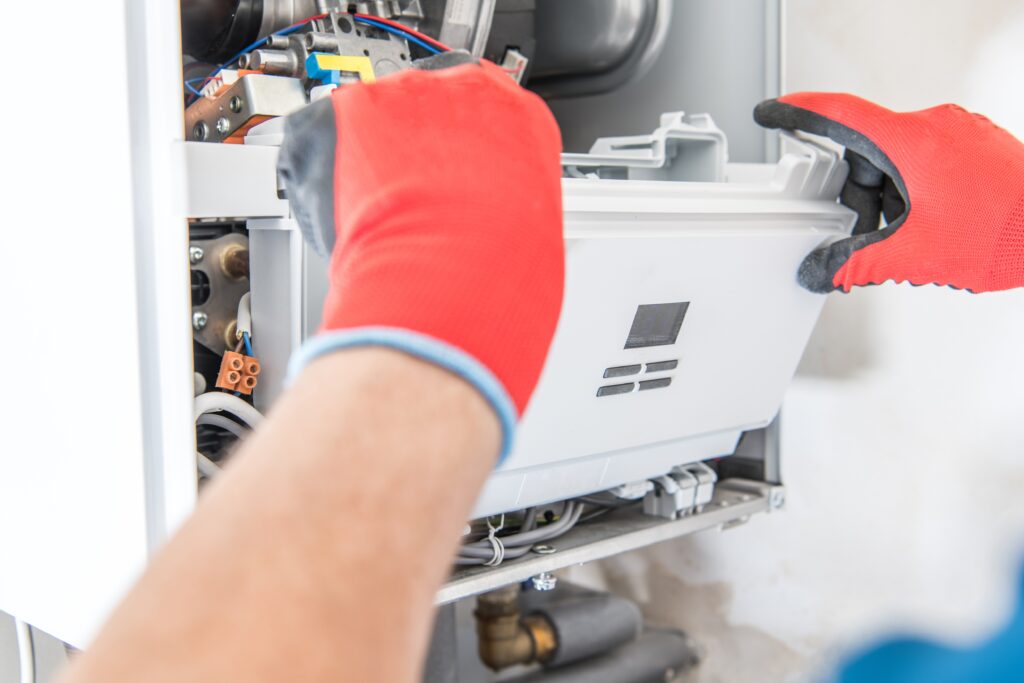
Even with regular maintenance, boilers can experience issues. Identifying these problems early can save you time and money in repairs. Regular inspections and prompt attention to any irregularities can significantly extend the lifespan of your boiler and improve its efficiency, ensuring that your home remains warm and comfortable throughout the colder months.
Signs of Boiler Malfunction
It is important for homeowners to be aware of signs that indicate a malfunctioning boiler. Common indicators include:
- Unusual noises such as banging or clanking.
- Leaking water around the boiler unit.
- Inconsistent hot water or heating.
- Increased energy bills without a corresponding increase in usage.
In addition to these signs, homeowners should also keep an eye out for a yellow or flickering pilot light, which can indicate a problem with the gas supply or combustion process. Furthermore, if you notice a persistent smell of gas or any unusual odors, it is crucial to turn off the boiler and contact a professional immediately, as this could pose a serious safety risk.
Potential Causes of Boiler Issues
Understanding the potential causes of boiler problems can help in diagnosing issues quickly. Main causes may include:
- Low water levels in the system.
- Faulty thermostat settings.
- Build-up of sludge or corrosion within the system.
- Age-related wear and tear.
Additionally, improper installation or lack of adequate ventilation can lead to significant operational problems. Boilers require a sufficient supply of air for combustion; without it, they may not function efficiently, leading to further complications. Regularly checking the flue and ensuring that vents are clear can help prevent these issues from arising, allowing your boiler to operate smoothly and safely.
Essential Boiler Repair Tips
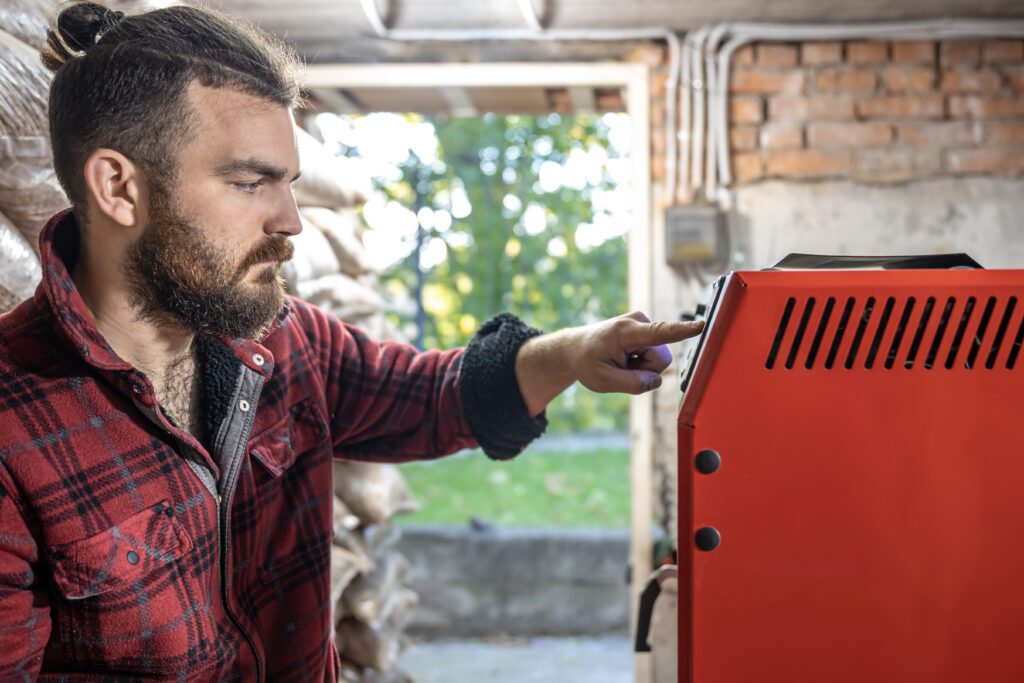
To ensure your boiler operates efficiently throughout the year, follow these essential repair tips.
Regular Maintenance and Inspection
Scheduled maintenance is the backbone of a well-functioning boiler system. Regular inspections help catch small issues before they escalate. Consider the following tasks:
- Annual servicing by a qualified technician.
- Bleeding radiators to improve efficiency.
- Checking pressure levels regularly.
In addition to these tasks, it’s also beneficial to check for any unusual noises coming from the boiler. Sounds like banging or whistling can indicate air in the system or sediment buildup. Furthermore, keeping an eye on the boiler’s age is crucial; older models may require more frequent checks and could be candidates for replacement if they are no longer efficient. Regularly cleaning the area around your boiler can also prevent dust and debris from affecting its performance.
DIY Fixes for Minor Boiler Problems
Some minor boiler issues can be resolved without professional help. Here are a few DIY fixes:
- Check and adjust the thermostat settings.
- Inspect the pressure gauge and add water if levels are low.
- Bleed radiators to release trapped air.
Always remember to prioritize safety. If you are uncertain about any fixes, it is best to consult a professional. Additionally, familiarize yourself with the boiler’s manual, as it often contains troubleshooting sections specific to your model. Knowing how to reset your boiler can also be a handy skill, as it can resolve many minor issues quickly. Moreover, keeping a log of any repairs or maintenance performed can help track the boiler’s performance over time, making it easier to identify patterns or recurring problems.
When to Call a Professional
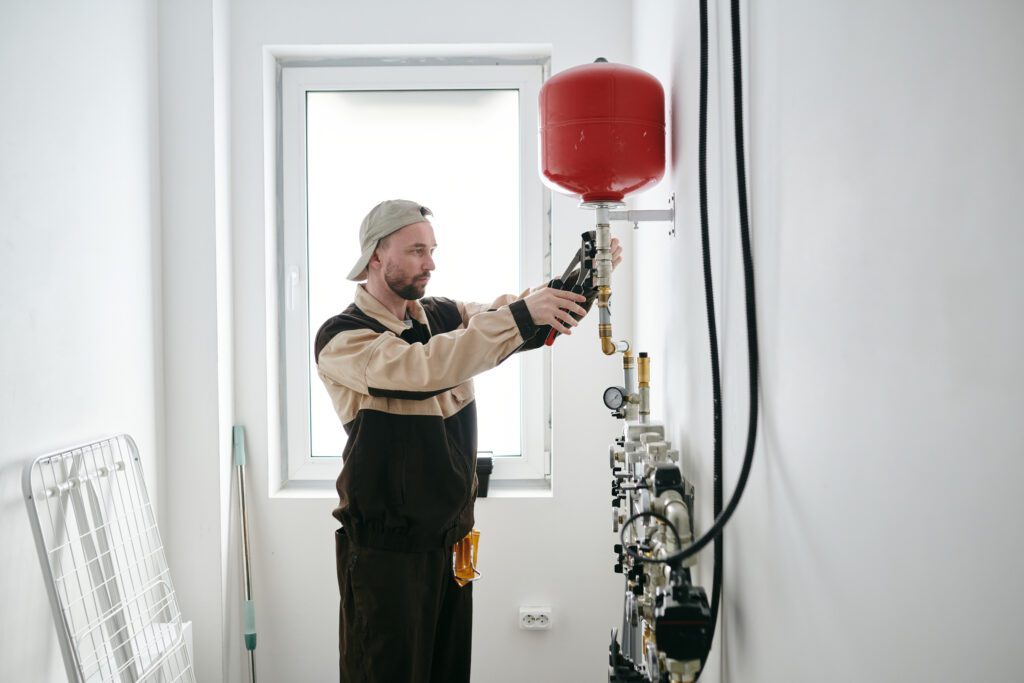
While DIY repairs can resolve minor issues, some situations require expert intervention. Understanding when to call for professional help is vital.
Complex Boiler Issues
Complex boiler issues often include signs such as frequent breakdowns or leaks. If you experience:
- A boiler that shuts down unexpectedly.
- Water pooling around the boiler.
- Persistent error codes on the control panel.
These are strong indicators that a professional diagnosis and repair are needed. Additionally, if you notice unusual noises, such as banging or gurgling sounds, it may indicate air trapped in the system or sediment buildup, both of which can lead to more severe problems if left unaddressed. Ignoring these signs can not only exacerbate the issue but also pose safety risks, such as gas leaks or carbon monoxide exposure, making it imperative to seek expert assistance promptly.
Finding a Reliable Boiler Repair Service in Martinsburg
Choosing a reliable boiler repair service can be daunting. Here are some tips to help you find a trustworthy technician:
- Check online reviews and ratings.
- Ask for references from friends or family.
- Ensure the service is certified and insured.
Getting multiple quotes can also help you make an informed decision. Furthermore, consider inquiring about the technician’s experience with your specific boiler model, as familiarity with the equipment can significantly impact the quality of service provided. Don’t hesitate to ask about warranties on repairs or parts, as reputable services often stand by their work and offer guarantees to ensure customer satisfaction. This not only provides peace of mind but also reflects a commitment to quality and reliability in the service you choose.
Preventative Measures for Boiler Longevity
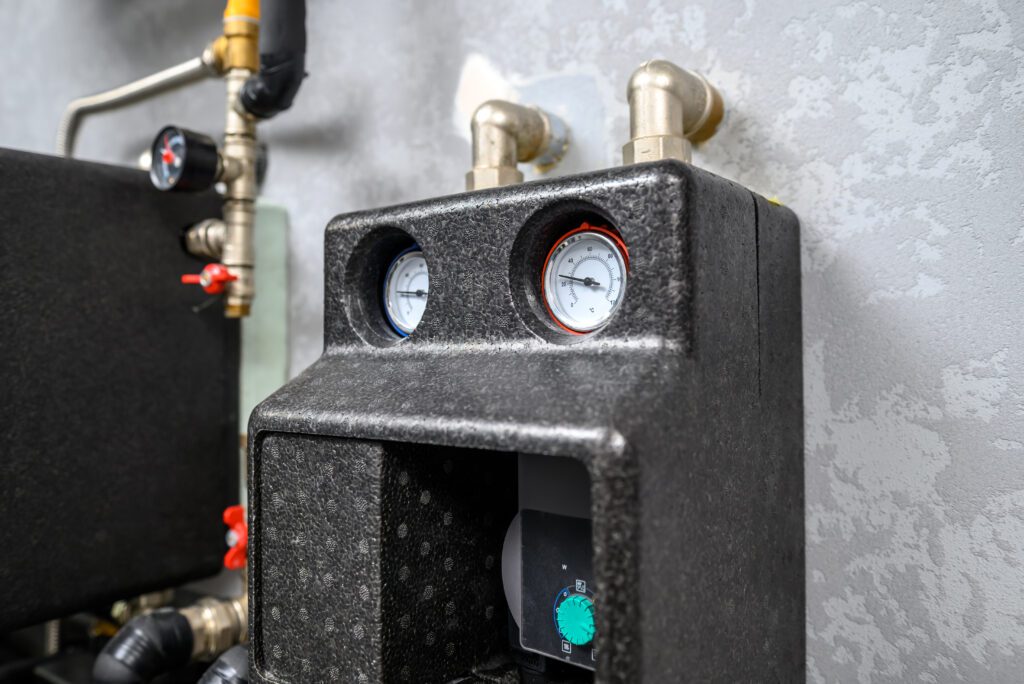
Preventative measures not only prolong the lifespan of your boiler but also enhance its efficiency. Here are some simple steps to take.
Tips for Boiler Efficiency
Improving your boiler’s efficiency can lead to significant savings on energy bills. Consider implementing these tips:
- Install a smart thermostat for better temperature control.
- Insulate your hot water tank and pipes.
- Schedule regular maintenance checks.
In addition to these measures, consider upgrading to a high-efficiency boiler model if your current system is outdated. Modern boilers are designed to maximize energy use and minimize waste, which can drastically reduce your carbon footprint. Furthermore, using energy-efficient appliances throughout your home can complement your boiler’s performance, creating a more sustainable living environment.
Seasonal Boiler Care
Seasonal care can make a significant difference in your boiler’s performance, especially during the unpredictable winter months. This could include:
- Checking the flue for blockages before winter.
- Testing the pressure relief valve to ensure it functions properly.
- Draining a small amount of water from the system to remove sediment build-up.
Additionally, it’s wise to keep an eye on the boiler’s pressure gauge. Maintaining the correct pressure is crucial for optimal operation; if you notice any fluctuations, it may be time to consult a professional. Another proactive step is to ensure that the area around your boiler is clear of debris and obstructions, as this can improve airflow and prevent overheating. Following these tips can help prevent boiler issues from occurring, allowing you to enjoy a warm and comfortable home throughout the cold months ahead.

